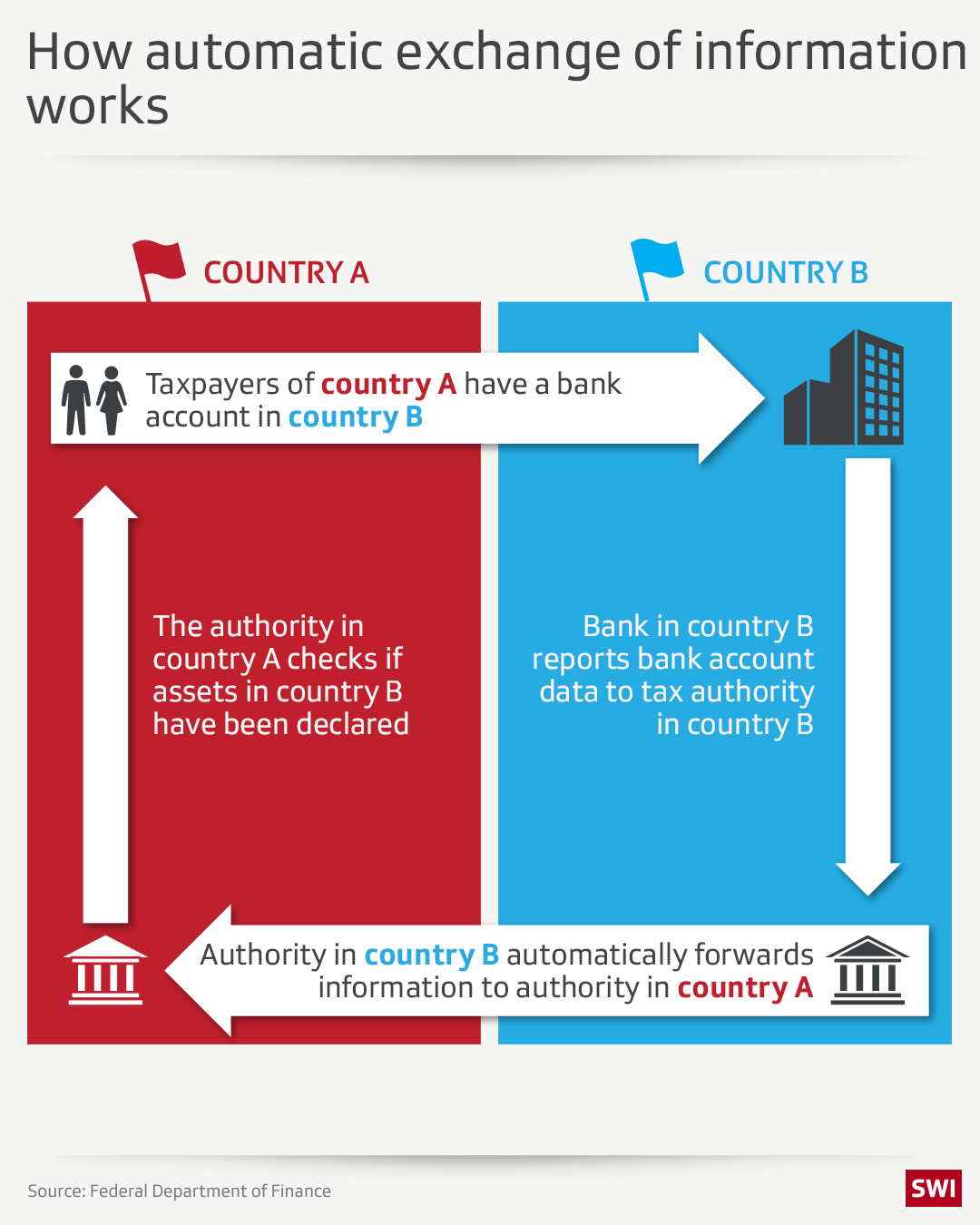Switzerland in the age of automatic exchange of banking information

A year ago, Switzerland began to pass on data on the bank accounts held by foreigners in Swiss banks to around 30 countries. This procedure will be extended to a hundred countries.
Why have international tax regulations been introduced?
With the globalisation of the world economy and the digitisation of services, it has become increasingly easy to deposit and manage funds with financial institutions in other countries. Large sums of money – believed to be in the thousands of billions of francs – can thus escape tax authorities every year. International tax evasion is a serious problem not only for the rich countries, but even more so for those with few financial resources.
With the support of the G20 and the EU, the Organisation for Economic Cooperation and Development (OECD) therefore drew up international standards in 2014 to enable countries to exchange bank information automatically. More than a hundred countries have so far decided to adhere to these standards, almost half of which have already started to exchange information in 2017. Participating countries must undertake to treat the data they receive confidentially and only for tax purposes.
These rules also aim to create a level playing field for all financial centres by putting an end to tax havens. Countries – or territories – that do not meet the criteria set out in international standards or that are not cooperative are included in grey or black lists of the OECD and the EU. “Defensive measures”, in other words sanctions, are envisaged against them.
How does the automatic exchange of bank information work?
According to OECD standards, each country is obliged to provide partner countries with data on the financial assets of their taxpayers on a regular basis and without precise request. The financial institutions of each participating country must provide this information to their own country, which is responsible for forwarding it to the tax authorities of the partner countries.
The information includes account and tax identification numbers, surname, first name, address and date of birth of the taxpayer, types of income and account balance. In Switzerland, these data must be collected by around 7,000 financial institutions, including banks, insurance companies and other asset managers.

Why has Switzerland decided to adopt international standards?
After having long defended banking secrecy against international pressure, the government and parliament came to the conclusion a few years ago that adherence to OECD standards was necessary to preserve the reputation and competitiveness of the Swiss financial centre. In particular, to avoid sanctions against Swiss banks or companies by G20 and EU members.
Where does Switzerland stand?
A year ago, the Confederation began exchanging initial data with 36 partner countries, including all EU members. This procedure will be extended to a further 37 countries and territories at the end of this month. From 2021, data are expected to be exchanged with more than 100 countries.
Despite initial concerns, adherence to the new transparency standards has not led to an outflow of assets held by foreign clients in Swiss banks. Between 2013 and 2018, the total volume of cross-border assets even rose from CHF1,970 billion to CHF2,270 billion ($1,977 to 2,278 billion).
The introduction of the automatic exchange of information, on the other hand, has helped add money to Swiss coffers. In January, it was revealed that in recent years taxpayers residing in Switzerland spontaneously declared more than CHF44 billion of assets abroad (CHF10 billion in 2018 alone). In total, the federal government, the cantons and the municipalities have thus been able to collect around CHF4 billion in retroactive taxes.

More
Swiss say goodbye to banking secrecy

In compliance with the JTI standards
More: SWI swissinfo.ch certified by the Journalism Trust Initiative












You can find an overview of ongoing debates with our journalists here . Please join us!
If you want to start a conversation about a topic raised in this article or want to report factual errors, email us at english@swissinfo.ch.